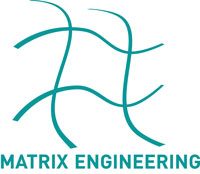
About our research
In the current second funding period of the TRR 67, we demonstrated that certain aECM -based biomaterials facilitate healing processes in bone and skin; moreover the underlying molecular mechanisms could be identified. In the third funding period, the objective will be taken to a more complex level, by endowing the biomaterials with several functionalities in order to adapt them to the specific requirements of the different phases of regeneration in bone and skin. For example, biomaterials will be designed which combine anti-inflammatory, wound healing promoting with antibacterial or good adhesive properties. Furthermore, we shall investigate the molecular mechanisms by which these multifunctional biomaterials influence regenerative processes within tissues. In order to strengthen the translational aspect, the multifunctional aECM-based biomaterials will be incorporated in implant coatings, wound dressings, or as carrier systems for cell therapeutics, and evaluated in relevant preclinical models with impaired bone or skin regeneration. Subsequently a validation on cell or tissue samples from patients with restricted bone or skin regeneration is planned; however we do not apply for funding of clinical studies at this stage. The long-term goal is to individualize the aECM-based biomaterials for certain patient populations (e.g. osteoporosis, diabetes).
- The Research Group A – Matrix Engineering – comprises the predominantly material science-/chemistry-oriented subprojects including associated more analytical subprojects.
- The Research Group B – Biological active profiles in cells systems and aECM-backed tissue regeneration – combine projects with cell biological and clinical orientation. The main focus here is the systematic cell and molecular biological characterisation of matrix/cell interactions in complex systems. We investigate mainly cell types that have intensive matrix contacts in skin and bones.
- The Research Group T – Transfer supports the translation, by development of prototypes and clinical testing.
- The project group Z comprises four purely methodically oriented subprojects, which assume service functions or administrative tasks.
